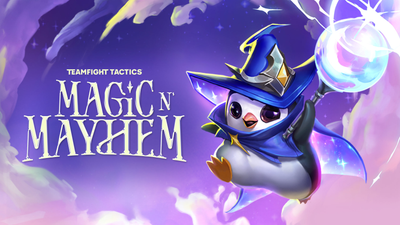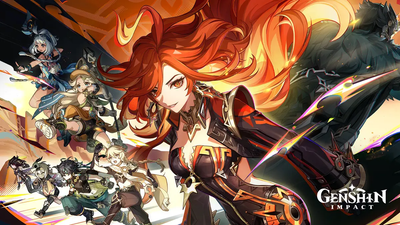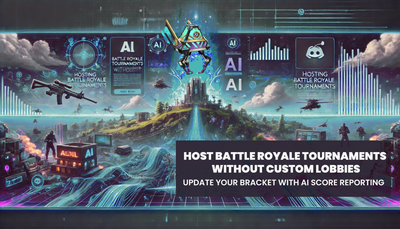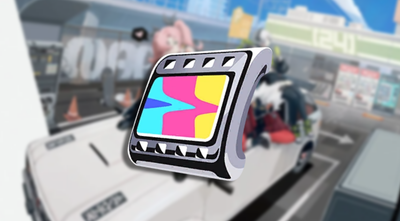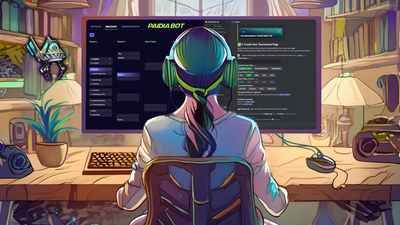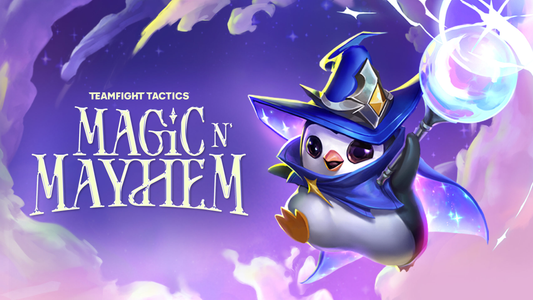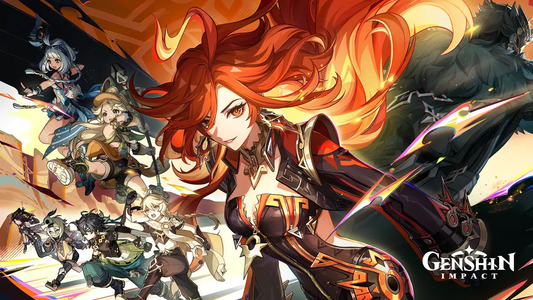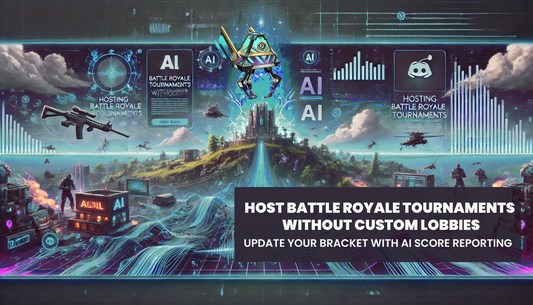Jessica Rodrigues (JR) - Today I am chatting with content creator Stephanie Peloza, who is Head Narrative Designer at Paidia Gaming. Can you give us a brief overview of your role, specifically your focus on the players’ experience with games and any distinctions with video game writing?
Stephanie Peloza (SP) - Originally, I came on-board at Paidia Gaming as a branding consultant; hired on from my work as a social media content creator where I go by the name Stef Sanjati. That’s really my background. During that time as a consultant, I got a bit experimental with the stuff I was doing and was really excited about the work. I came on full time in the fall as Head Narrative Designer, which is a two-pronged role.
There is the narrative designer aspect which is very focused on building the fiction, the world building, the narrative, the characters of our IP which is the world of Paidia. This is a science fiction fantasy, more leaning towards science fiction, set on a planet called Paidia, elsewhere in our universe where humans and other sentient species live and it’s a very solarpunk world with aspirational characters.
I’m also very involved in the branding outside of fiction. This work is more marketing related. I talk with the team about our brand, our partners and I work with the art team to do a lot of behind the scenes work for that visual language that communicates to our users and audience about who we are, what we do and what we are trying to achieve with the platform.
(JR) - You do it all! You have said that as a teenager, gaming became a lens of self discovery for you, can you elaborate on this and, in doing so, touch upon the importance of representation with the characters in games?
(SP) - Absolutely! As a kid, I started gaming extremely young, like three or four years old. There wasn’t a time in my life where I wasn’t adjacent to a video game - I was either outside on a neighborhood adventure or on a digital adventure.

This wasn’t the only Birthday Stephanie asked for a Pokemon cake.
(JR) - What were some of the games you played as a kid?
(SP) - Yoshi’s Island, a Super Nintendo title. I actually still love the music from that game and still listen to it sometimes! Gosh, Donkey Kong 64 was a big one for me as well, and I was always playing the latest Pokemon title. We were a Nintendo household - I remember on Halloween my brother and I dressed up as Mario & Luigi. I then started playing Xbox and PC. I started playing World of Warcraft when I was 9 years old and I still play that game. My main character from that game, I have had since I was 11 years old and I’m now 26 so that’s a long-lived character!

Stephanie and family dressed up for Halloween!
With these games, some of them were fun and engaging while others were worlds that I could get lost in, immersed in and wander or encounter moral choices with characters with different backgrounds and struggles. I really used that because I grew up in a very small town: a corn farming and factory community in southwestern Ontario. So, I used that as a lens to learn about the world outside of my home town and to reflect on who I was and the choices I might also make.
In games where you can make your character, I often found myself making female characters. Growing up as a trans girl, I'd see boys making female characters and make the excuse that the character was attractive to them. But that was never my reasoning for making female characters. I was always confused thinking, “that’s not why I am doing this”. I really like this character and I really feel like this character. It was through that initial exploration that I came to understand what transness was and that that was my situation. Video games became that lens of exploration not only for gender, but for morality, culture, everything. It was super core to my development.
(JR) - You are also a streamer on Twitch with a community called “The Campfire”. Can you discuss how you are a variety streamer and your favourite games to play and analysis?
(SP) - Initially when I started streaming, I built that all with my partner. He is very tech aligned and he helped me get started and find a niche and a direction. We really built that together. It was great! The original idea was to focus on games with rich storytelling, environmental storytelling and, as a gamer, look at the game as a piece of art that the team has put together and treat it like that and analyse it like that. For example, It’s not just a barrel in the environment. It’s not just an environment to walk through, the barrel was put there purposefully. There is something on the barrel; what does this mean? Maybe a barrel is a silly example, but there is lots of stuff like that in all kinds of games! As a person who loves video game development and narrative writing, I see those details and wanted to share that with the community. We also did tons of different role-playing games and narrative games. That could include everything from The Elder Scroll series, or horror titles like the Amnesia games to Little Nightmares as a narrative platformer. All just really interesting art and really interesting worlds.
Stephanie is all smiles when it’s time to play video games
In the last year I’ve gone full time with Paidia and a lot of these games are really big and require dozens, if not, hundreds of hours of investment depending on the franchise or title. So, lately we have been pivoting more to multiplayer experiences that we can share with the community to also empower gamers from all different backgrounds, especially those from marginalized communities, to feel like they can go into these challenging game environments. To feel like they can complete cool challenges and develop their skills. A bit of a change in direction will happen soon with the stream, now that I am doing narrative full time, but that’s where it started. With the storytelling around the campfire.
(JR) - I love the name.
(SP) - Thank you! We’re probably going to keep it with the rebrand.
"If you feel there will not be space for you or that you will be shut out from this industry, there is validity to that feeling, but it is important to try to challenge those things, if you can, and try to make that space for yourself and for others."
-Stephanie Peloza
(JR) - I also ask this of the people I interview, any advice for people wanting to enter into the gaming space? You are a storyteller; can you share some guidance for budding content creators?
(SP) - With content creation there are so many different avenues you can take and so many different platforms you can utilize. I think from a more practical standpoint, something you can do as a budding creator is try to be strategically aware of what platforms are performing well for the type of content you want to produce. The sort of thing you can do on TikTok is different from what you can do on Twitch or Instagram, of course, and all of these are different business models. Find what you like to make and find the right platform for that content.
From a more cerebral standpoint, there are so many different content pillars such as lifestyle, tech, gaming or beauty and what’s important as a creator, and a creative individual, is that you identify your values. Define what you want to create and what you want to share with the world and you stick to that. It’s important to adapt to what your audience likes, but it’s also important to remember what you are doing and why you are doing it so you don’t get lost chasing those numbers and chasing that growth because that’s a never-ending race. Just ensure you are keeping true to that creative place.
As well, for the gaming industry as a content creator, I will say that when I was starting off in my career even at the end of high school, when choosing what I wanted to do, I always wanted to go into gaming. Whether it was an environment designer or writer or an artist; I loved all of it. I felt at the time, roughly 2010 or 2011, that there wouldn’t be space for me in the industry. As a queer person and as a trans person, I didn’t think a path in gaming was an option. I actually went into beauty and fashion because I felt like that’s where I belonged and that’s where I could find opportunity. That was fine. I enjoyed it! I went to school for creature design and film makeup and I got to sculpt monsters and create characters out of what I was doing with beauty and fashion. However, the pull into gaming was strong and I ended up back here. My advice in this regard, would be that if you feel there will not be space for you or that you will be shut out from this industry, there is validity to that feeling, but it is important to try to challenge those things, if you can, and try to make that space for yourself and for others. This is what I am trying to do with Paidia Gaming and what the Paidia Gaming team is trying to do - to make the industry better for everybody.
(JR) - Paidia is disrupting the gaming industry by making gaming inviting, entertaining and engaging, while fostering positive social connections. Can you talk to us about how you have used the learnings in your own community building to further foster an inclusive community at Paidia?
(SP) - Originally when I was brought in, as I mentioned, I was a consultant for branding and social media. Immediately from the get-go, that was built into my approach with the brand. Especially from my experience as a content creator with a largely queer or marginalized community-based audience.
As a storyteller, when I tell my story, I also receive other peoples’ stories in response. People would share their experiences from a variety of different backgrounds and I try to recall, with respect to those stories, I try to reflect what they would want to see. And, of course, what I would want to see as well! There is a commonality in the world where the struggles that we deal with here on Earth aren’t necessarily fun to relive in a fantasy. The power fantasy for a queer person is not necessarily, for example, to face down a homophobic bully; it’s perhaps not having to deal with them in the first place and instead getting to slay the dragon. It’s to do something great and aspirational. That’s the energy we are using with the characters. They don’t have to deal with our earthly issues. They get to be the heroes and embody those exciting characteristics that male communities, predominantly white male communities, have gotten to experience in their video games. That said, there is still nuanced conflict in our fiction - just written in such a way that empowers our readers/fans.
No matter what I was doing with my career, whether it was narrative or fashion related, the outfit was a costume and a character and the makeup had to do with all of that. Even throughout that time I was strengthening that sensibility and I use that now with writing characters. My knowledge of fashion and beauty is a component of that as well. It all folds together and, ultimately, what I hope that we are creating is something inclusive and exciting and refreshing. Something that people have wanted, but that hasn’t really been present in the market. That’s my goal right there!
(JR) - What are you and the team at Paidia working on now? What can we expect next?
(SP) - We have been working really hard since May of last year. It’s been a lot of development in a short time, but it has been really great. We have found a lot of efficient ways to make the site more exciting. Our tournament functionality is working really well and all of our original projects we are continuing to refine. Moving forward, while I can’t share everything but a couple of things on the narrative side that I can share, are that we are working on some short stories featuring the characters and some audio book experiences to accompany those stories. Each story is done in a different style and by a different author to reflect the character and their energy.
We've got our wallet system up and running as well, which allows users to enter tournaments with prize pots and earn winnings on-site - super exciting! The solar crystal currency we use is actually from the fiction - little sunlight absorbing energy crystals the people of Paidia use to power technology. Because of its utility, it's become a trading item within the fiction, especially amongst the more technologically aligned factions like the Nomads and New Terra.
(JR) - Ok, who are some of your favourite queer characters?
(SP) - Parvati Holcomb is from The Outer Worlds. She is a really great biromantic asexual character! She has such a cool design and personality as well as a cool character arc. Her love interest story is also very charming and well done.
There is also Juhani, she is a character from the Knights of the Old Republic which is an older BioWare title and she was a canonical lesbian character in a time when that was very uncommon. She always had a cool design and story as well; especially dealing with her inner conflict as a force user struggling with emotions & the dark side, which was an interesting dynamic.
A quick shout out to Tyler Ronan from Tell Me Why, a more recent release. Well performed, well written, voiced by a trans man and it’s something I want to see in queer characters. Also, the story did not revolve around his transness. While the story touched on it, it was brief and thoughtful and appropriate. That was awesome. It was additionally successful because they let August Aidan Black, the voice actor, consult on the character writing.
Another shout out to Paper Mario: The Thousand-Year Door, a character named Vivian. In the original Japanese release of the game, she was a trans character. She did experience transphobia in the Japanese version of the story and I can’t speak to how well nuanced the writing was, but she was cool. Her visual aesthetic wasn’t at the expense of her trans identity, but in the English version it was erased out of her writing altogether. But very cool and a character I loved as a kid. That’s my list right now!
(JR) - Is there anything else you want to leave with our readers?
(SP) - It can be disheartening encountering toxicity, harassment, racism, sexism, misogyny and all of these different intersectional struggles and issues. Our cultural programming can be disheartening, but I can say that there are a lot more people dealing with those incoming struggles than those outputting them. If we work together, and we strive and push for changes, they will happen. They are already happening! While it’s very loud in the news, for example, realistically these things have been happening forever. So now seeing these issues being talked about and dealt with, it is a step forward. I really believe that within the next decade, we can make massive progress for inclusivity, for a wider cultural shift in gaming and I am excited to put my efforts towards that change. I believe we can make something incredible within this industry.


